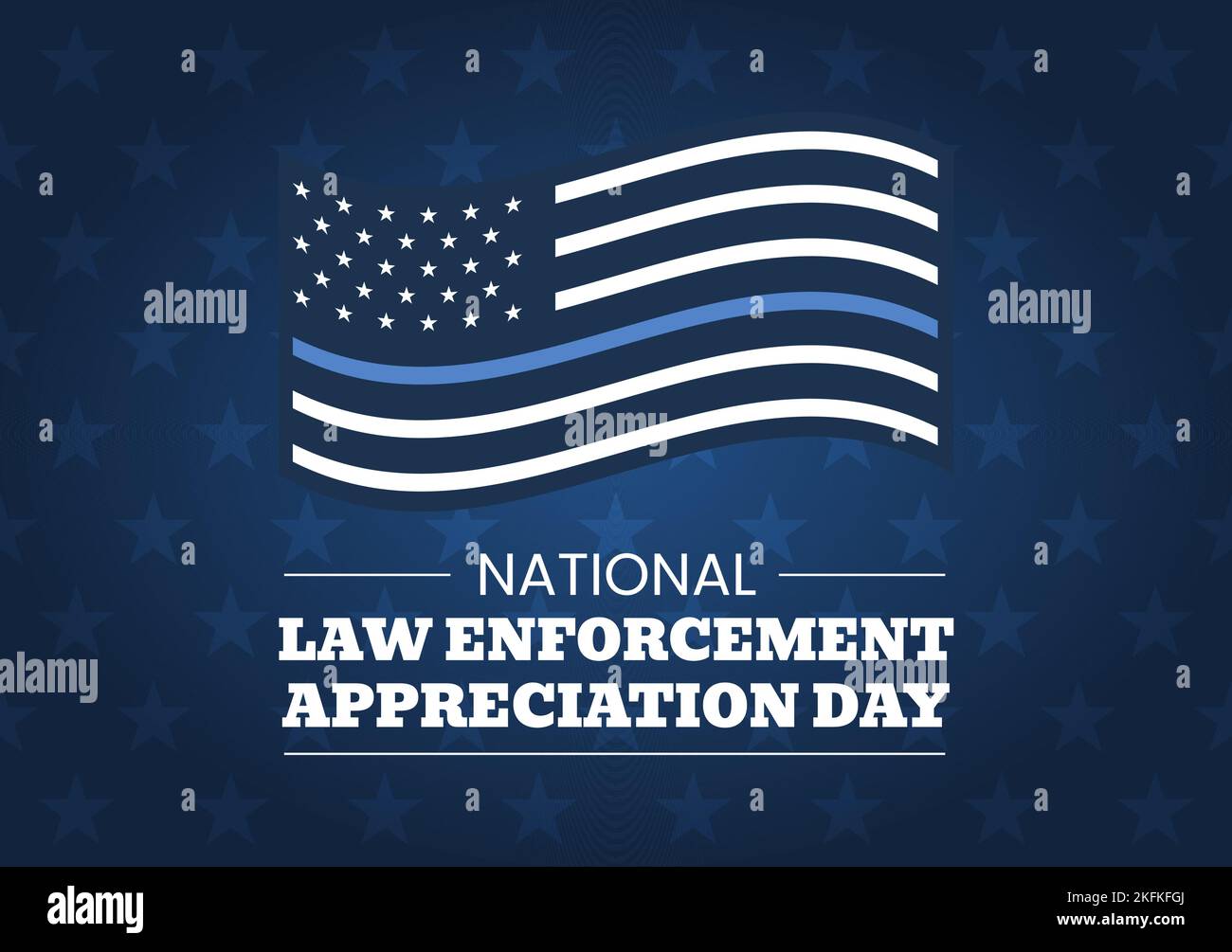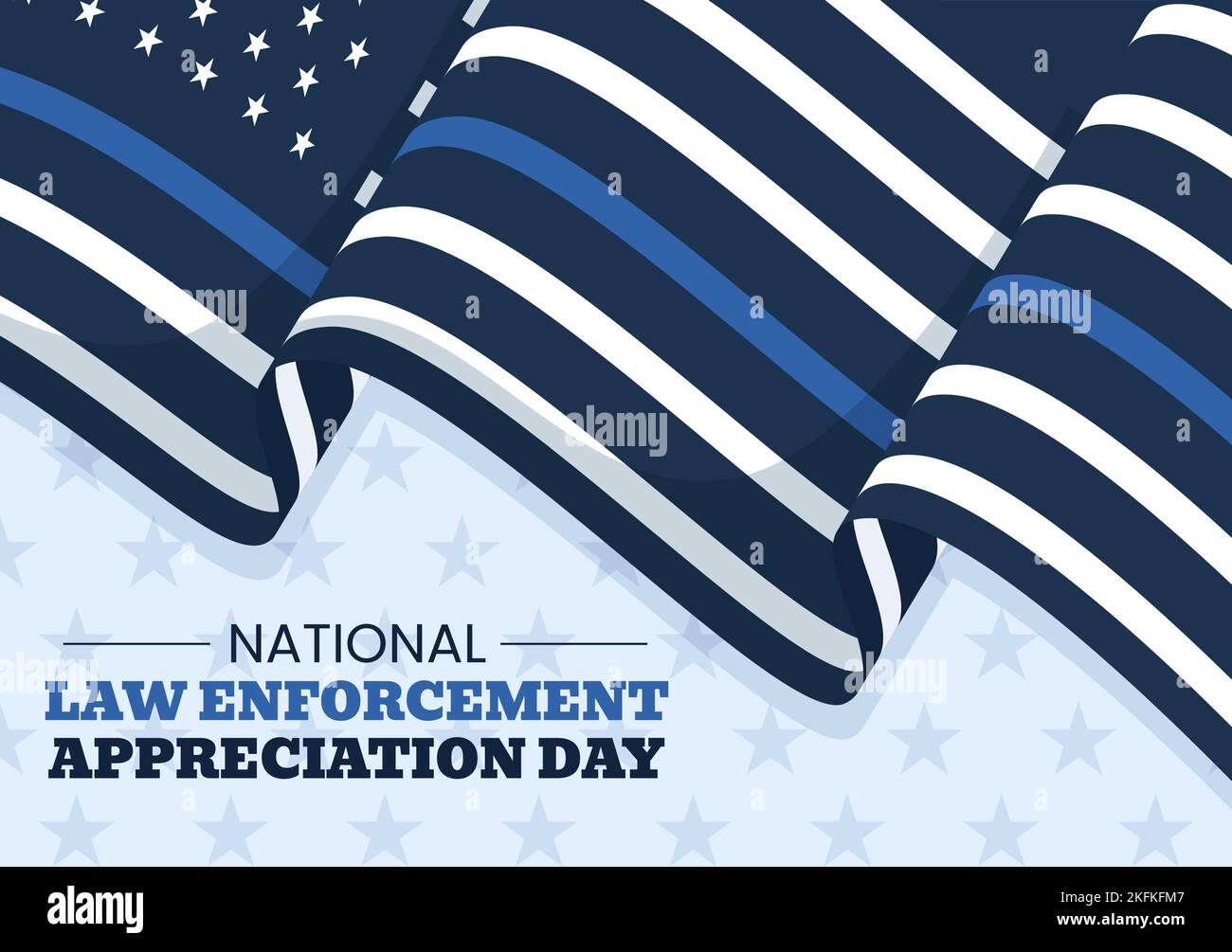Honoring the Brave Men and Women of Law Enforcement: A Celebration of National Law Enforcement Appreciation Day
As the first Monday in October marks the start of a new month, many Americans take a moment to reflect on the sacrifices and dedication of those who serve and protect our communities. National Law Enforcement Appreciation Day, celebrated annually on the first Monday of October, is a day to express gratitude to the brave men and women of law enforcement who put their lives on the line every day to keep us safe. On this special day, we want to take a moment to thank and appreciate the tireless efforts of law enforcement officers, from local police departments to federal agencies, who work tirelessly to uphold justice and maintain order in our society.
National Law Enforcement Appreciation Day was created in 2005 to recognize the sacrifices and contributions of law enforcement officers. Since its inception, the day has grown in popularity, with millions of Americans showing their appreciation for the men and women in uniform. This year, we invite you to join in the celebration and take a moment to express your gratitude to the law enforcement officers who make a difference in your community.
The Importance of Law Enforcement in Our Communities
Law enforcement plays a vital role in maintaining order and ensuring public safety in our communities. From responding to emergency calls to investigating crimes, law enforcement officers are on the front lines, working tirelessly to protect us from harm. According to the Bureau of Justice Statistics, law enforcement agencies reported over 3.4 million arrests in 2020, with a significant portion of those arrests related to violent crimes.
Law enforcement agencies also work to prevent crimes from occurring in the first place. Through community policing initiatives and partnerships with local organizations, law enforcement officers are able to identify and address emerging trends and threats before they become major problems. For example, the National Institute of Justice has reported that community policing initiatives have been shown to reduce crime rates and improve relationships between law enforcement and the communities they serve.
The Risks and Challenges Facing Law Enforcement Officers
Law enforcement officers face some of the most challenging and hazardous conditions of any profession. From dealing with violent suspects to responding to emergency calls, officers are constantly putting themselves in harm's way to protect others. According to the National Law Enforcement Officers Memorial Fund, over 100 law enforcement officers were killed in the line of duty in 2020, with many more injured or critically ill.
Law enforcement officers also face significant challenges in terms of their mental and emotional well-being. The job can be physically and emotionally demanding, with many officers reporting stress, anxiety, and post-traumatic stress disorder (PTSD). The International Association of Chiefs of Police has reported that many law enforcement agencies are taking steps to address these challenges, including providing mental health services and training officers on stress management and self-care.
The Different Branches of Law Enforcement
Law enforcement agencies can be broadly categorized into three main branches: local, state, and federal. Local law enforcement agencies, such as police departments and sheriff's offices, are responsible for enforcing laws and maintaining order within their respective jurisdictions. State law enforcement agencies, such as state police and highway patrols, are responsible for enforcing laws and maintaining order along state highways and borders.
Federal law enforcement agencies, such as the FBI and DEA, are responsible for enforcing federal laws and maintaining order on federal lands and borders. Federal agencies also play a critical role in investigating and prosecuting major crimes, such as terrorism and organized crime.
Types of Law Enforcement Agencies
- Local Law Enforcement Agencies: These agencies are responsible for enforcing laws and maintaining order within their respective jurisdictions. Examples include police departments and sheriff's offices.
- State Law Enforcement Agencies: These agencies are responsible for enforcing laws and maintaining order along state highways and borders. Examples include state police and highway patrols.
- Federal Law Enforcement Agencies: These agencies are responsible for enforcing federal laws and maintaining order on federal lands and borders. Examples include the FBI and DEA.
The Challenges Facing Law Enforcement Officers in the Digital Age
In the digital age, law enforcement officers face a wide range of challenges that are unique to this era. From cybersecurity threats to social media misuses, officers are constantly working to stay ahead of emerging trends and threats.
One of the biggest challenges facing law enforcement officers in the digital age is cybersecurity. With the increasing use of technology, law enforcement agencies are facing a growing threat from cybercriminals who are using social media and other online platforms to commit crimes. Officers must be vigilant and proactive in protecting themselves and their agencies from cyber threats.
Social media is also posing a significant challenge to law enforcement officers. While social media can be a valuable tool for officers to engage with the public and gather intelligence, it can also be used to spread misinformation and conspiracy theories. Officers must be mindful of the potential risks and take steps to mitigate them.
Digital Challenges Facing Law Enforcement
- Cybersecurity Threats: Law enforcement agencies are facing a growing threat from cybercriminals who are using social media and other online platforms to commit crimes.
- Social Media Misuses: Social media can be used to spread misinformation and conspiracy theories, posing a significant challenge to law enforcement officers.
- Online Intelligence Gathering: Officers must be mindful of the potential risks and take steps to mitigate them when gathering intelligence online.
National Law Enforcement Appreciation Day: How You Can Show Your Appreciation
National Law Enforcement Appreciation Day is a day to express gratitude to the brave men and women of law enforcement who put their lives on the line every day to keep us safe. There are many ways to show your appreciation, from small gestures to more significant actions.
Some ways to show your appreciation include:
- Sending a Card or Message: Write a heartfelt message or send a card to a law enforcement officer or agency, expressing your gratitude for their service.
- Making a Donation: Consider making a donation to a law enforcement agency or organization, supporting their efforts to keep our communities safe.
- **Part
Chudney Ross
Talia Ryder
Helene Joy Net Worth 2024
Article Recommendations
- Katiana Kay Age
- Laurenpton Husband
- Competition Rank Tracker
- Amariah Morales Fans
- Bobbi Althoffd
- John Pinette
- Hisashi Ouchi Pictures
- Zooemoore
- Dominic Monaghan
- Hisashi Ouchi Real



